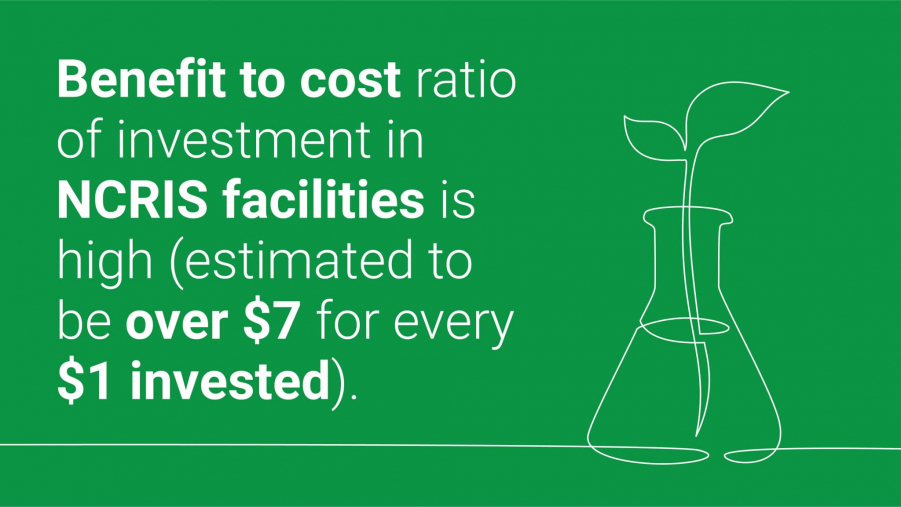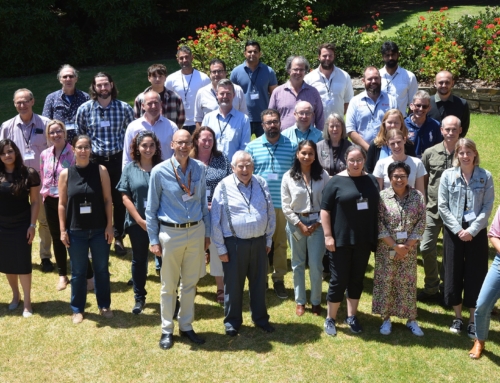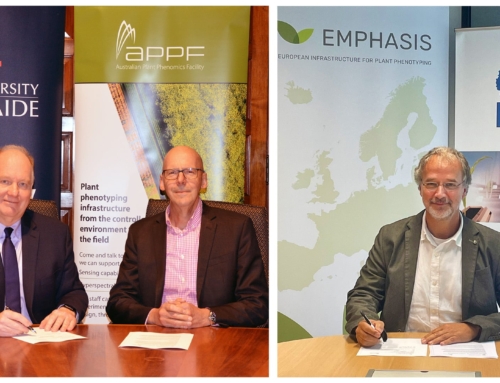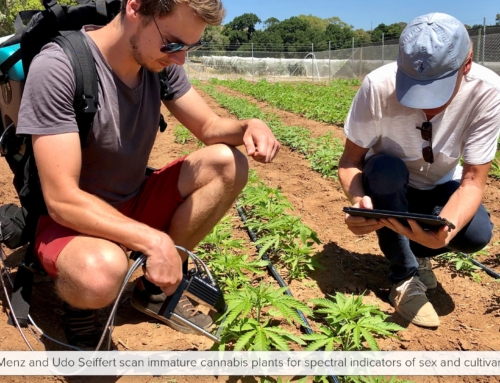Australian science continues to make national and international headlines, most recently focusing on how the science community helps us deal with major challenges such as the COVID-19 pandemic and the 2019 – 2020 Australian bushfires. Behind these headlines, you will find a community of impassioned researchers. And supporting them, you will find a network of research enablers from NCRIS, the National Collaborative Research Infrastructure Strategy. The APPF is one of these enablers and has played a role underpinning innovative plant science research that has an impact in domains as diverse as medical vaccines, high-value novel crops for better foods, and understanding crop resilience in the face of climate change and other environmental emergencies.
Since 2004, NCRIS has enabled a wealth of research excellence, making it both headline-worthy and a critical pillar of the Australian economy. Leading economists agree.
In 2021, Lateral Economics (LE) was commissioned to assess the positive impacts of NCRIS on Australian society and the environment and identify ways in which NCRIS funding has and will continue to support the Australian community and economy.
The report found the direct benefit of investment in NCRIS is calculated to be above a $7 return for every $1 invested, a return on investment (ROI) of 7.5:1. The report notes that by 2022-23 the investment could support the employment of an additional 1,750 scientific and technical staff, support staff, and supply chain and industry personnel. The report concludes:
“Based on economic theory and evidence from the time of the GFC to present, we can think of few approaches to providing additional stimulus to the Australian economy that is more cost-effective than increasing investment in NCRIS.”
The APPF’s Executive Director, Dr Susie Robinson welcomes this important finding, noting that the NCRIS network of world-class research facilities is driving innovation and research in Australia and internationally.
“The challenges we face are numerous and through NCRIS Australia has both built its scientific capability and also achieved flow-on effects into a stronger and more resilient economy.”
“For the science and innovation community to be able to respond quickly and skilfully to compelling challenges requires access to top-class infrastructure and expertise, coupled with teamwork. Current global challenges such as COVID have proven that, and we are proud to be part of such critical infrastructure that quietly achieves so much for our nation.”







